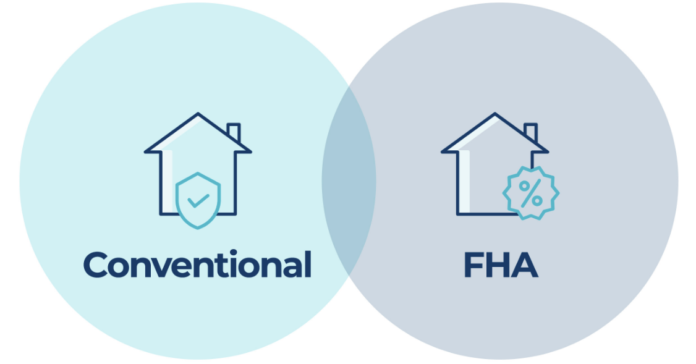When it comes to financing your dream home, navigating the world of mortgages can be quite overwhelming. Two of the most common options you’ll encounter are conventional loans and FHA loans. Each has its own set of advantages and disadvantages, and choosing between them can significantly impact your homeownership journey. In this article, we’ll break down the key differences between conventional loan vs FHA loans to help you make an informed decision.
Understanding Conventional Loans
Conventional loans are mortgages not insured or guaranteed by any government agency. They are offered by private lenders, such as banks and credit unions. Here are some key points to consider when opting for a conventional loan:
- Higher Credit Score Requirements: Conventional loans loans. Lenders often look for scores above 620 to offer competitive interest rates.
- Down Payment: Conventional loans usually demand a larger down payment, typically around 5% to 20% of the home’s purchase price. A substantial down payment can lower your monthly mortgage payments.
- Private Mortgage Insurance: If your down payment is less than 20%, you may need of default. PMI adds to your monthly expenses.
Exploring FHA Loans
Making them more accessible to borrowers with less-than-perfect credit histories. Here are some key aspects of FHA loans:
- Lower Credit Score Requirements: FHA loans are more lenient regarding credit scores.
- Down Payment: FHA loans have a lower first-time buyers or those with limited savings.
- Mortgage Insurance Premium: FHA loans require an upfront mortgage insurance premium (MIP) and an annual MIP. These additional costs should be factored into your budget.
Which One Is Right for You?
Depends on your financial situation, credit score, and long-term homeownership goals. Consider the following factors:
- Credit Score: A conventional loan may offer lower interest rates if you have an excellent credit score. FHA loans are ideal if your credit score needs improvement.
- Down Payment Ability: A conventional loan can save you money in the long run if you have a substantial down payment saved.
- Long-Term Plans: Consider how long you plan to stay in your home. If it’s a short-term investment, an FHA loan with its lower upfront costs may be a better choice.
- Monthly Budget: Analyze your monthly budget and determine if you can comfortably manage the higher down payment and potential PMI with a conventional loan. Read more…
Conclusion
In the end, the choice between a conventional loan vs FHA loan depends on your unique financial situation and homeownership goals. Insights tailored to your specific circumstances.
FAQs (H1)
- What is the main difference between a conventional loan vs FHA loan?
- Conventional loans are not government-backed, while the Federal Housing Administration insures FHA loans.
- How do credit score requirements differ between the two types of loans?
- Conventional loans typically require a higher credit score, while FHA loans are more lenient and accept lower scores.
- Is it possible to refinance from an FHA loan to a conventional loan?
- Yes, you can refinance from an FHA loan to a conventional loan once you meet the eligibility criteria and have improved your credit score.
- What are the advantages of putting down a larger down payment with a conventional loan?
- A larger down payment can lead to lower monthly mortgage payments and potentially eliminate the need for private mortgage insurance (PMI).

